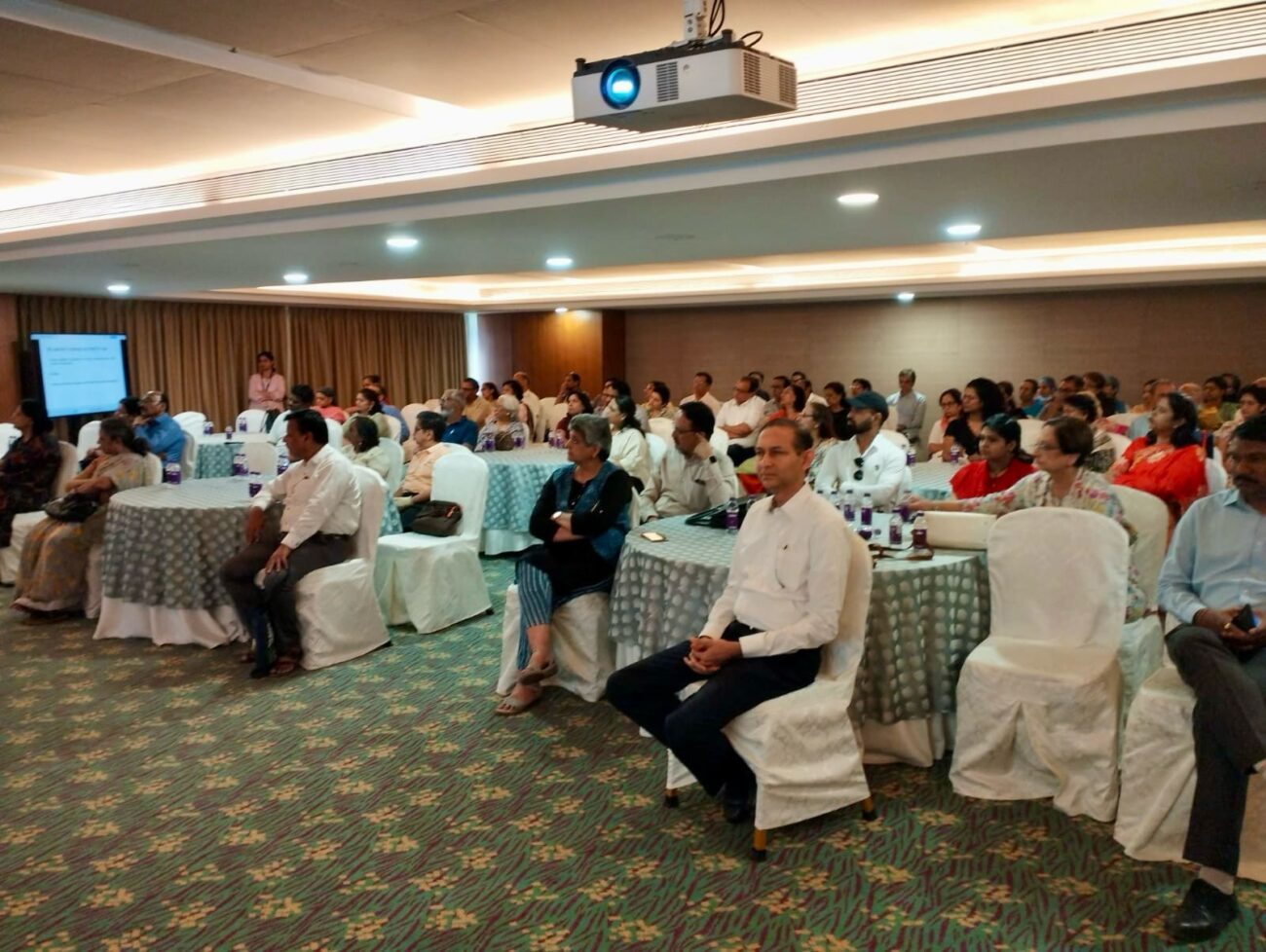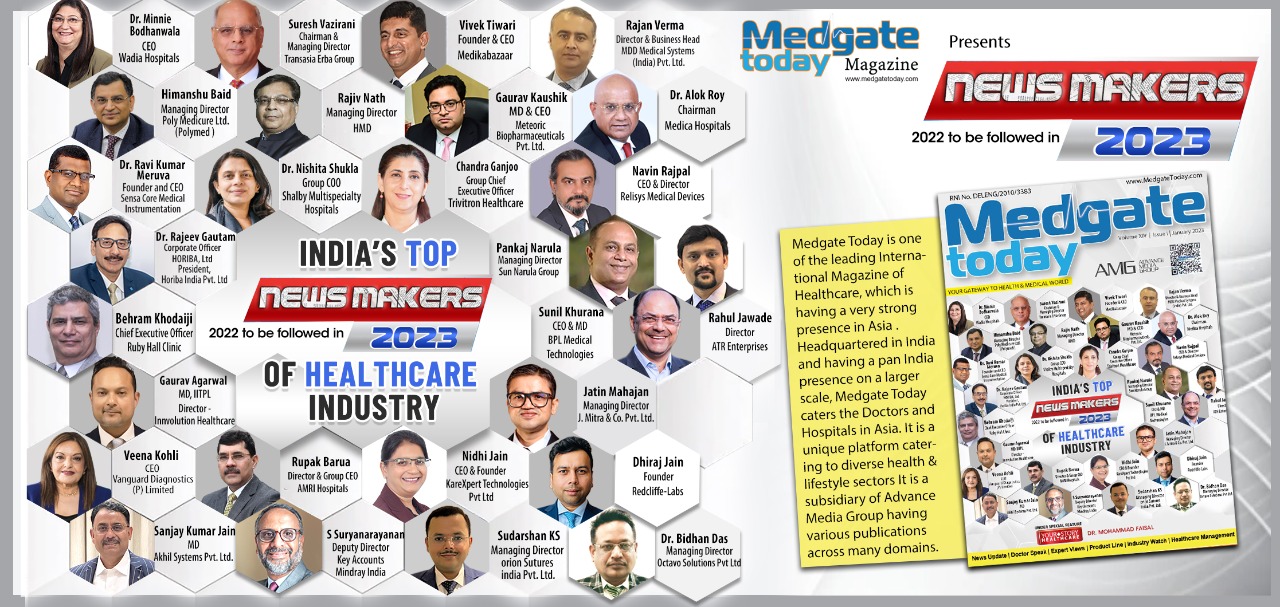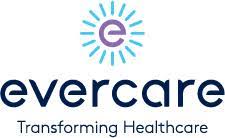HEALTHCARE LEADERS FROM INDIA, USA AND SOUTH EAST ASIA CAME TOGETHER TO DISCUSS SURVIVAL DURING COVID-19 AND BEYOND
Discussion focused around digital and data-driven healthcare outreach and delivery, indigenous ecosystem, consolidation of back-end operations and mitigation of value chain risks Healthcare leaders from India, USA and South East Asia discussed the survival during COVID
Discussion focused around digital and data-driven healthcare outreach and delivery, indigenous ecosystem, consolidation of back-end operations and mitigation of value chain risks
Healthcare leaders from India, USA and South East Asia discussed the survival during COVID 19 and Beyond at the webinar on ‘COVID-19 Survival and Beyond: Strategic Choices for the Healthcare Sector’ organized by Leading global professional services firm, Alvarez & Marsal (A&M) India . The discussion highlighted the impact of the coronavirus outbreak on India’s private hospitals, value chain risks and the sector’s path forward.
India’s healthcare industry continues to reel from COVID-19 stress as it simultaneously loses substantial revenue streams. According to industry estimates, the deferment of elective surgeries and outpatient consultations have contributed to a 50 to 60 percent decline in revenue for private healthcare providers, along with a 70 to 80 percent drop in outpatient footfalls during the month of April 2020.
Moderated by Kaustav Ganguli, a Managing Director with Alvarez & Marsal India, the webinar panelists included Dr. Ashutosh Raghuvanshi, Managing Director and CEO, Fortis Healthcare; Dilip Jose, Managing Director and CEO, Manipal Hospitals; Viren Shetty, Executive Director and Group COO, Narayana Health; Dr. Abhinay Bollineni, CEO, KIMS Hospitals; Varun Khanna, CCO of Siloam Hospitals, Indonesia; Gurmit Singh Chugh, Chairman, Translumina Therapeutics; Anish Bafna, Managing Director and CEO, Healthium Medtech; and Larry Kaiser, Managing Director with Alvarez & Marsal’s New York based Healthcare Industry Group.
Key takeaways from the discussion included:
- The need to build pragmatic and downside solutions to charter and plan demand, service and occupancy growth
- The optimization of cost and capital for future performance
- The importance of embracing digital healthcare outreach and delivery through data analytics, telemedicine and e-pharmacy, as the new normal beyond the pandemic
- The enforcement of transparency measures
- The need for government and regulatory support
- The ramping up of specialized care and post-COVID-19 health risk management for healthcare workers
Commenting on the webinar, Mr. Ganguli said, “The healthcare industry is at the cusp of transformation, underpinned by learnings from the pandemic as it also prepares to efficiently serve patients in the post-COVID-19 era. We brought healthcare leaders together at this inflection point to define and show the way forward for the industry.”
“The integration of technology and healthcare, such as analytics for better patient outreach and telemedicine for delivery, has been gaining acceptance and is here to stay in the post-COVID-19 era. Newer technology-focused platforms will emerge, and will interoperability be a key success factor,” said Dr. Raghuvanshi.
Mr. Jose responded, “These unprecedented circumstances call for a reevaluation of operating models including a review of compensation frameworks and consolidation of resources, across industries. However, in our sector, those who ensure reasonable cost efficiencies that are not driven at the cost of the workforce will emerge less scathed.”
Dr. Bollineni added, “It is imperative to address issues of employee costs with regards to the nurses, contractual labourers, technicians, housekeeping staff, etc., in a nuanced manner. Additionally, a greater number of private hospitals are now being designated as COVID-19 centres, and there is a pressing need for the government to shoulder operating costs in low-demand centers.”
Commenting on the potential for private healthcare operators to adopt new solutions to enhance post-COVID-19 operational efficiencies, Mr. Shetty stated, “Healthcare is a notoriously conservative industry; however, the current situation has accelerated the inevitable evolution and rapid adoption of technological innovations. Robotic process automations and AI can help cost optimization and consolidation of services at the back-end, whereas the human workforce can be channeled into higher demand and strategically important areas.”
Mr. Khanna noted, “Contrary to beliefs, COVID-19 has significantly impacted the healthcare delivery businesses and necessitated the need for innovation, Hospitals should look for opportunities and align products and delivery systems to the evolving needs of our patients. Unlike India, Indonesia is heavily reliant on global medical tourism and is a net exporter of patients. But as the virus outbreak prevented outbound medical tourism, we scaled up infrastructure and strategic tie ups to provide specialized, continued and advanced care to patients within the country”
In response to how India’s hospital supply chain is likely to evolve in the mid- to long-term, Mr. Bafna commented, “The current situation will provide an impetus for hospitals to re-evaluate their procurement model. There will be some significant shifts that will require a clear framework. Given the current supply chain is quite fragmented, we anticipate consolidation in the distribution space, enabling higher fulfillment and better service.”
Mr. Chugh remarked, “Market access and quality control are crucial factors and are intertwined. Patients want the best quality of healthcare products, regardless of where they are manufactured, making it a watershed moment for homegrown med-tech and pharmaceutical companies to up the ante, and beef up manufacturing. The essence of a vibrant and self-reliant domestic healthcare delivery model is Indian companies making high quality and proven technologies and hospitals accepting and believing in their efforts rather than blindly accepting “imported” products.”





